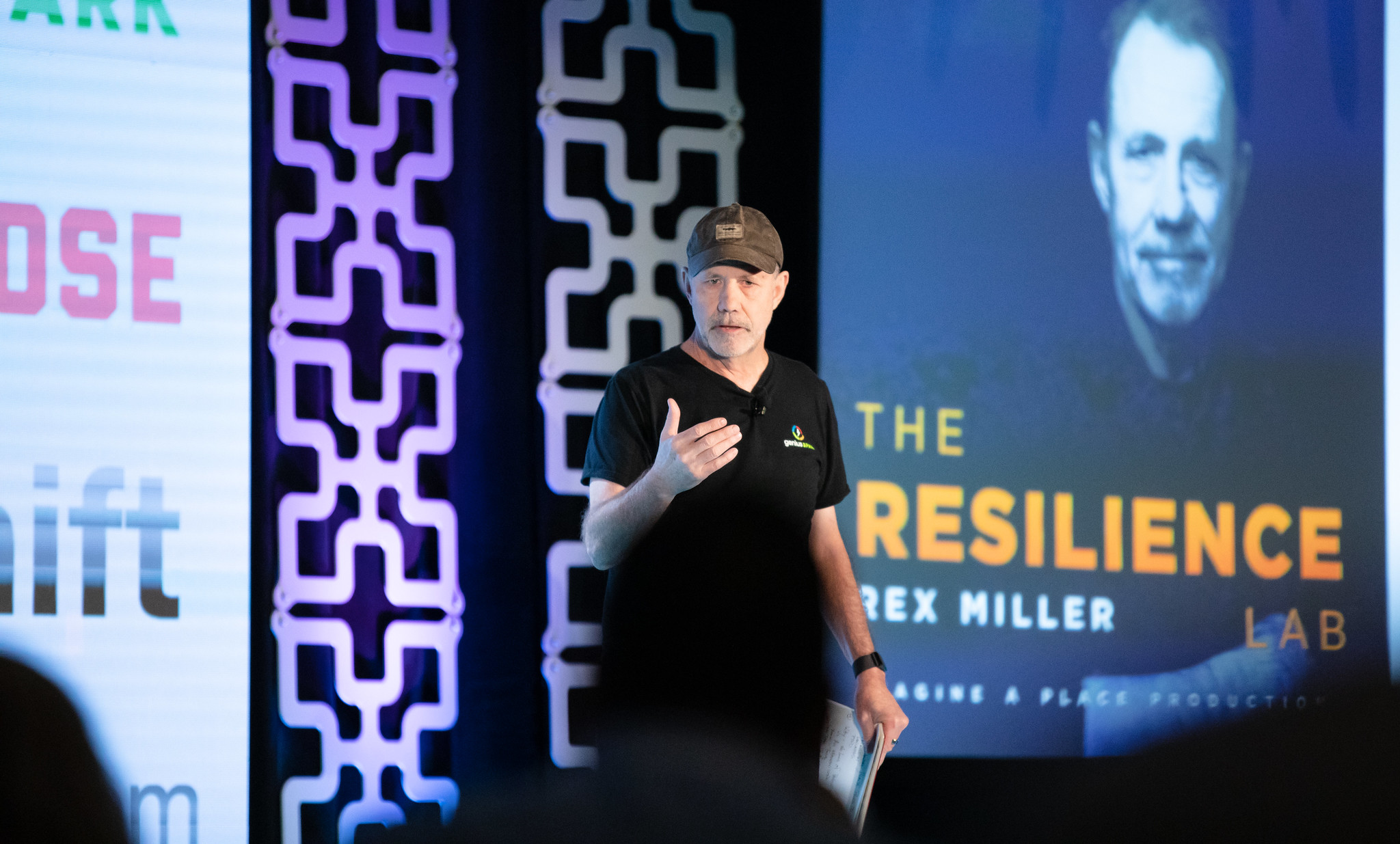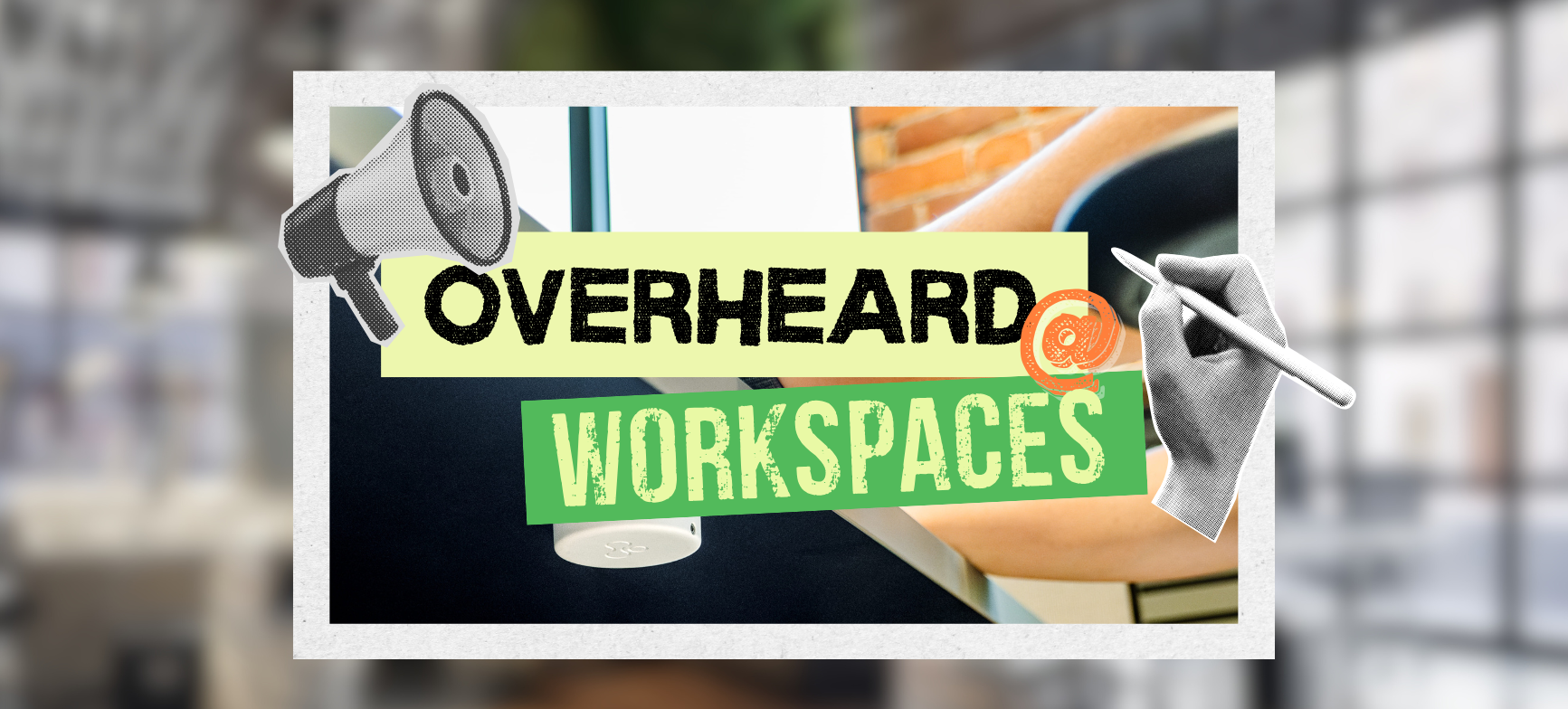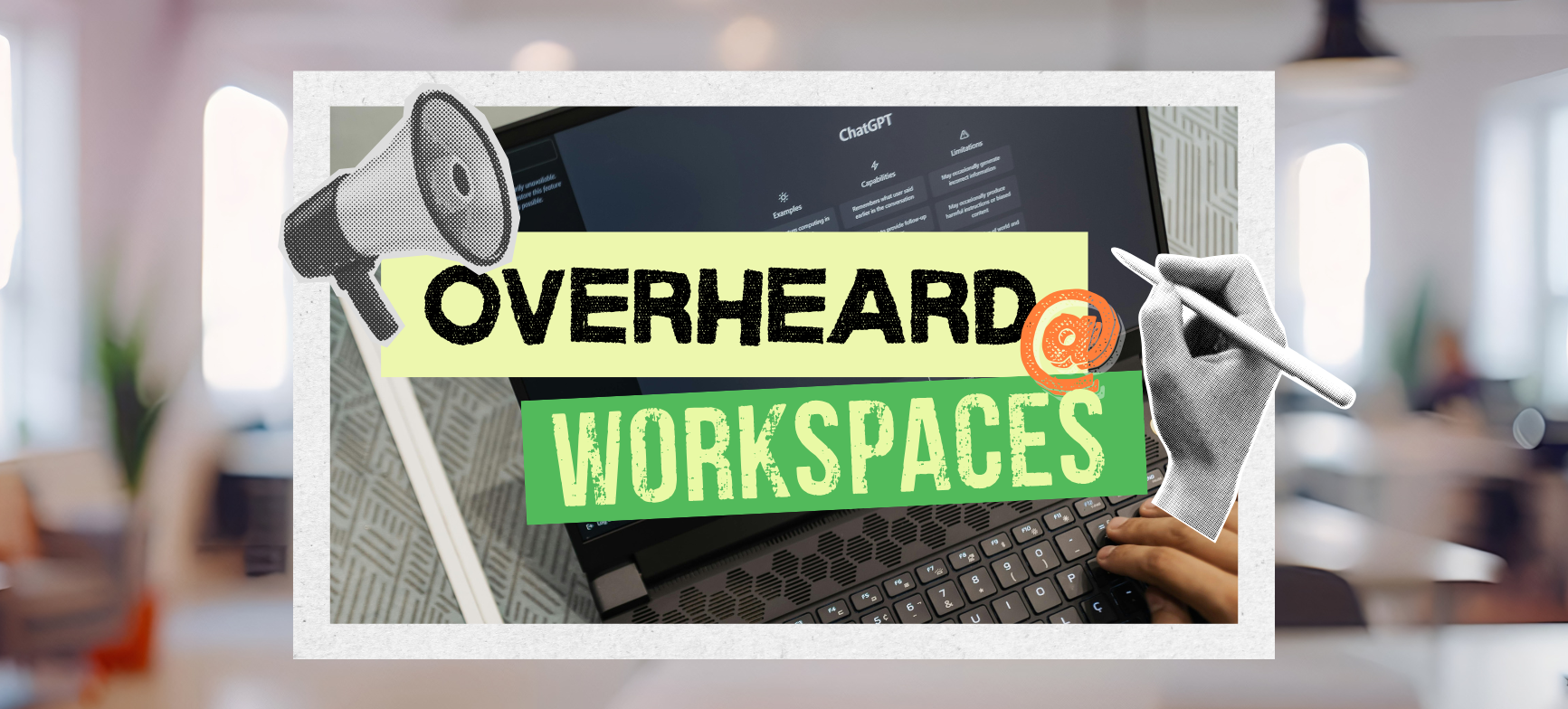When Rex Miller took the stage at WorkSpaces, he made a last-minute decision to toss his prepared remarks and slide deck. Rather than discuss the role of return-to-office policies in a healthy democracy, he turned to another subject of increasing concern to him: the effects of remote work on the very fabric of our society.
As a futurist, Miller’s job is to envision the unintended consequences of the present. When he looks out at the corporate landscape, he sees the same concerning trends he sees in schools — a not-so-gradual erosion of the social and emotional tools vital to functioning businesses. Over the course of his off-the-cuff talk, he discussed why these tools are so important and what it might take to rebuild them.
The Diminishing Fabric
One lasting casualty of Covid-19, Miller argued, is the social experience of the workplace. The pandemic unleashed powerful technological capabilities that allow businesses to function with distributed workforces, but it may also have sapped those workforces of essential human capabilities. Without healthy in-person office interactions, Miller said, companies risk their employees becoming isolated and stressed, which in turn makes it difficult to do good work and live healthy lives.
Miller pointed out that these effects aren’t theoretical. Citing clinical psychiatric Dr. Jeff Jernigan, Miller noted that over the course of the pandemic, the amount of the population experiencing PTSD symptoms went from five percent to a whopping 30 percent. Miller believes that unfortunately, society has yet to rebuild the institutional framework to rebuild social capital and drive these numbers down.
“It’s not an individual issue,” he said. “It’s system design. If the system is the same, it’ll drive the same behaviors.”
Those behaviors include work habits that promote stress and preclude meaningful focus, like back-to-back meetings. “We know it takes about 15 minutes to get into a focus rhythm; it takes 45 to 90 minutes to actually do what [computer science professor] Cal Newport calls deep work,” Miller said. “Microsoft did brain scan studies that found if you do back-to-back meetings, your beta waves increase over the day — that’s your stress.” And stress, it turns out, is “the major cause of all the unhealthy coping behaviors that lead to chronic disease.”
A more healthy system design would center an understanding of the human body, in particular the ways it responds to social experiences by releasing serotonin and reducing stress-creating cortisol.
“Think of performance like you would an athlete,” Miller said. “You have to warm up, then you perform, then you recover. No meeting should be more than 45 minutes. In Microsoft's study, what they found is that if you've got at least a 10-minute break in between the meetings, your beta waves stay at baseline — in other words, they don't increase.”
Rebuilding Empathy
In Miller’s view, rebuilding a strong social fabric also requires rebuilding empathy in our workforces. After all, he explained, empathy is essential to having healthy, meaningful interactions with the people around us.
"What you experience with empathy is something in your brain called the mirror neuron," he explained. "You can either build it, shut it down, or let it atrophy. When we shut it off, we objectify others, we put 'em into categories, they become enemies. When we turn it on, I can put myself in somebody else's shoes and I can see the world through their feelings and their eyes.”
While he believes current remote work paradigms aren’t enough to rebuild empathy, he stressed that the answer is not necessarily full return-to-work policies. Rather, the solution may lie in social experiences — conferences, for instance — that provide “bucket-filling experiences” in which people can have enjoyable, face-to-face interactions with their colleagues and peers, satisfying their need for in-person relationships and replenishing their stores of empathy, focus, and overall happiness. He suggested that these are especially important when it comes to new employees, who increasingly struggle in the world of virtual onboarding.
“If we're social animals and we need our buckets filled, but we prefer to stay home, that's an indictment of what we don't want to come to," he said.
As Miller wrapped up his talk, he turned to a quote by Winston Churchill that speaks to the importance of workplace design — not only in our careers, but in our lives and our selves. “‘We shape our buildings and they shape us,’” he concluded. “I think we can do deeper work. If you remember one thing: It’s all about the empathy.”

Posted by
Join us at WorkSpaces!
The retreat for corporate real estate and workplace innovators.
Oct 4-6, 2026 | Santa Barbara, CA




-3.png)
-3.png)


-2.png)

Comments